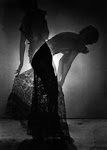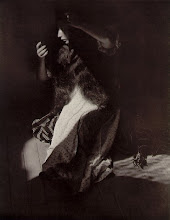Maja S. K. Ratkje - River Mouth Echoes (Tzadik 2008)

MAJA S. K. RATKJE
River Mouth Echoes
Tzadik 2008
4/5
Listen: Wintergarden
Maja Ratkje is a woman unafraid of experimentation. In 2002, she released, Voice, her solo debut, in which she elaborately manipulated her recorded vocals to create improvised compositions that were engaged with both creative noise and fleeting beauty. Improvisation is certainly the strongest part of everything Ratkje does and I’d go as far as to say that without this aspect, I’m not sure she would have achieved such powerful works. It’s not something that comes necessarily easy, but Ratkje has a long background in improvisation, from fe-mail to Spunk and working with figures like Frode Halthi and Jaap Blonk.
With River Mouth Echoes, Ratkje continues in this vein of experimentation and manipulation of sound, creating an a sort of overview of 20th century music that references Ligeti, Bartok and other eclectic, modernist composers. But at the same time, Ratkje seems to want to manipulate the instruments on each piece to such an extent that they become unrecognisable. Try making out Rolf-Erik Nystrøm's alto sax on the first track, for instance. It’s almost become a new instrument. It’s this method and creative exploration, rooted more in Jazz Improvisation and electronics than Classical music that gives this record its originality.
Ratkje has become so confident in her ability to freely improvise, using manipulated recordings in a more electro-acoustic than musique concrete fashion that she has crafted an album that is tonally very rich and conceptually coherent, but also highly diverse, and that in itself is a very rare feat. From the saxophone on ØX, to her voice on Wintergarden to the accordion and double bass on Essential Extensions to the viola da gambas on the title track, Ratkje takes pleasure in how far each instrument can be electronically exploited to produce something new and fresh. Brutal to melodic in one foul sweep.
This is difficult listening, not difficult like the free improvisation of artists like Derek Bailey or the abstract harmonic experiments of Nancarrow are difficult in the sense that they are extremely cerebral works, (for River Mouth Echoes is far more visceral in the same vein as Ligeti’s ‘micropolyphonic’ works), but difficult in the sense of being loud, noisy, chaotic and intrusive. There is great beauty behind this work, the kind that has the emotional power to rouse the listener, both shocking and seducing them at the same time.



0 comments:
Post a Comment